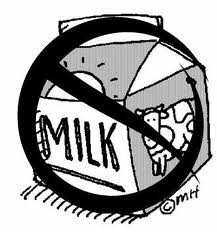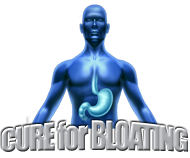Is The Gas In Your Stomach Related To A Lactose Intolerance?
Is The Gas In Your Stomach Related To A Lactose Intolerance?
Are you one of those unlucky people who can’t handle much in the way of dairy products? Do you indulge in a bowl of ice cream and then “pay for it” later with constant trips to the bathroom? How about that tall glass of milk at breakfast that tastes so good but gives you awful bloating for the rest of the day? Lactose intolerance is no picnic!
Symptoms of Lactose Intolerance
How do you know if the gas in you stomach is related to a lactose intolerance? Here are some of the signs:
- Abdominal bloating
- Cramps
- Gas
- Diarrhea
- Nausea
These signs usually appear within 30 minutes to two hours of eating something that contains a dairy product. Over time, you might start to see other symptoms, such as unexplained weight loss. Sometimes you might also experience abdominal pain that goes beyond that full, icky feeling of bloating and gas.
How Do You Know It’s Dairy?
The best way to tell if you are lactose intolerant is to gradually remove dairy products from your diet. If your gas and bloating goes away, then it’s a safe bet that you are lacking the enzyme that allows your body to digest dairy products.
Keep in mind that some people can be mildly lactose intolerant. That means that perhaps you can have a glass of milk, but not two glasses. Or maybe you can have certain cheeses or sour cream, but you can’t tolerate milk. If you are mildly intolerant, you can often still indulge in dairy products by simply avoiding those that cause you the most problems. You can also try using Lactaid, an over-the-counter medication that helps your body digest dairy.
When Lactose Intolerance is Severe
Sometimes you are faced with a serious case of lactose intolerance. In these individuals, any amount of lactose can cause an issue. In that case, avoiding all dairy products is absolutely necessary to keep your body feeling in tip-top shape. But of course, avoiding dairy products can make it difficult to get the calcium your body needs. To replace the calcium in your diet, try these tips:
- Eat foods with calcium, such as leafy greens, oysters, canned salmon, shrimp, broccoli and others
- Take a calcium supplement that ensures you get the 1,200 to 1,500 mg of calcium you need each day
- Increase your protein intake from non dairy sources
Be sure to speak with your doctor about other ways to get the proper amount of calcium in your diet.
Need to Figure Out What to Eat?
Now that you think you might be lactose intolerant, it’s time to figure out how to live with the condition. Keep in mind that sometimes dairy products appear in places you might not expect — you might even find dairy products in beers! It is important to recognize the foods that can cause you trouble and read labels to help you avoid them. If you’re not sure what to keep your diet and what to eliminate, we can help. Our comprehensive ebook features diet guidelines that can make life with lactose intolerance much easier. This easy to read ebook is a must read for anyone dealing with bloating, gas or lactose intolerance!
[wp_eStore_fancy1 id=1]


